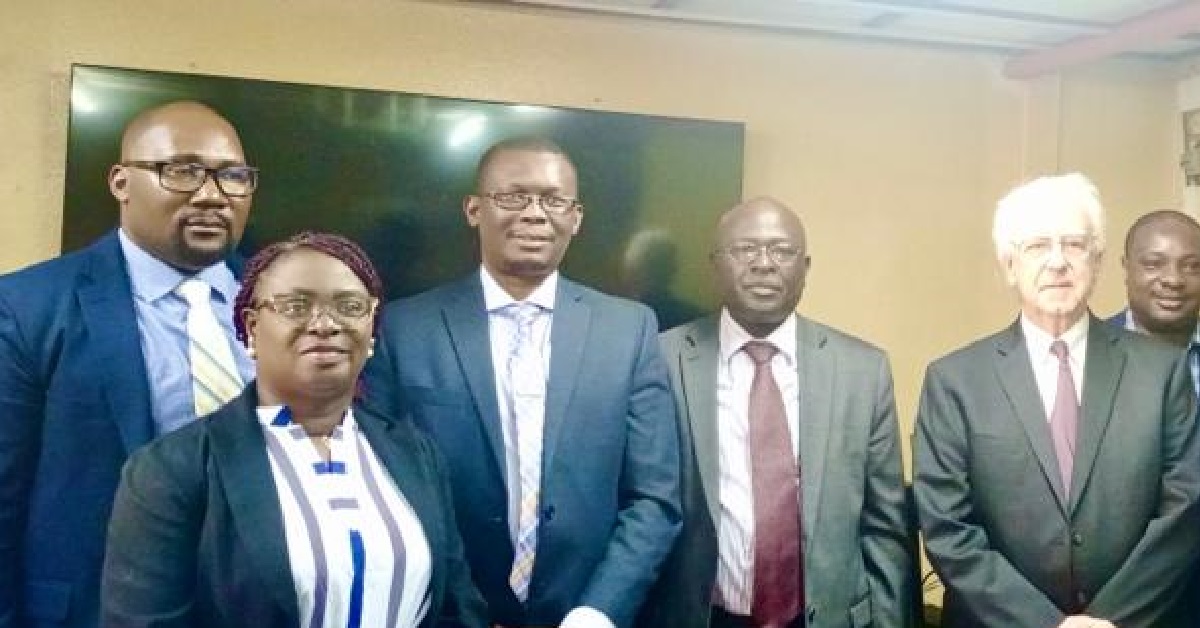On Thursday 2 February 2023, a mission from the International Monetary Fund (IMF), AFRICAC West 2, on the invitation of the Government of Sierra Leone, engaged staff of the Ministry of Finance, Fiscal Risk Management Division to address challenges of State-Owned Enterprises (SOEs) operations at the Accountant General Department, George Street in Freetown.
The Principal Deputy Financial Secretary (PDFS) Mathew Dingie, in his opening statement, stated that the Fiscal Management Risk Division was established in 2018 as a result of the pressure from the budget that emanated from the State-Owned Enterprises (SOEs) in terms of pay-out and debt which made some of these SOEs go into liquidation, and the burden falls on the government.
Explaining the implementation strategy of the government, he said that the government have implemented a lot of reforms over the years to minimize the financial risk of these SOEs, stating that the availability of early and prompt information would enable to ensure that those risks are been figured out and systems put in place to mitigate them.
Dzingai Francis Chapfuwa of the IMF also shared his thought on the importance of getting pre-information from the SOEs, understanding the metrics and being able to come up with a framework suitable for the Sierra Leone situation as well as encouraging all present on the concerted effort that will create a positive outcome.
Catherine Kambai, Senior Economist at the Fiscal Risk Management Division, gave a succinct and summarized explanation of the Fiscal risk division, the major sources of SOEs’ Fiscal Risks, SOEs’ Financial vulnerabilities, contingent liabilities, exogenous shocks and specific fiscal risks of what they are basically engaged in.
‘’There are currently sixteen active SOEs in the Country and these SOEs represent a large cost to the budget due to increased provision of subsidies to quasi-fiscal operations and ball of some SOEs’.’
She furthered that SOEs may also undermine economic growth, particularly where they operate in vibrant sectors for which possible solutions are necessary to be sorted out to eliminate such risk in the country.
In his statement, Kubai Khasiani, Regional Advisor Public Financial Management AFRITAC west 2 during the discussion said that the team is ready to cohesively develop and tackle the outstanding macroeconomic risk, a specific risk with a mitigation strategy that can assist in the monitoring of financial risk and strengthen the government’s effort.
He maintained that their presence in the country is to be able to work together and not in isolation with the team to develop a contextual model and that strategy will be together developed and worked on respectively to have a well-drafted idea that will stand a test of times.
Bernard Drum SOE Specialist IMF consultant also presented his satisfaction of being part of the team to make things work out and with the ideas he has gained from different countries across the world on solving these problems, he believed that the outcome will be great and workable for Sierra Leone as well.




 Post a comment
Post a comment









Comment(s)
Disclaimer: Comments expressed here do not reflect the opinions of Sierraloaded or any employee thereof.
Be the first to comment